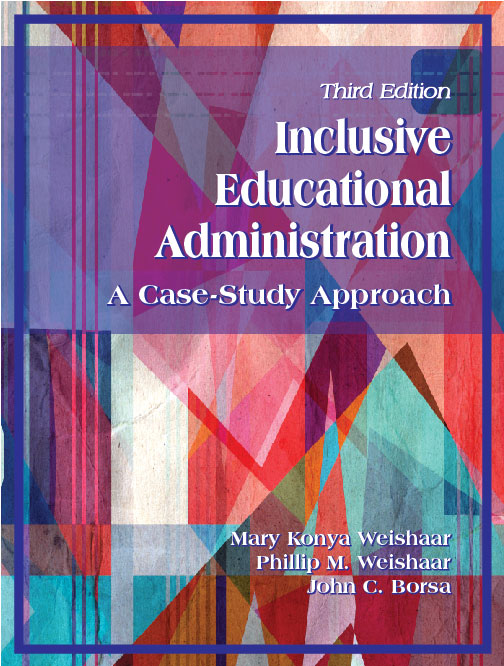1. The Case-Study Approach
Objectives of the Case-Study Approach / The Case-Study Analysis Process / Conclusion
2. Inclusive School Governance and Special Education
The Dual System of Governance and Practice / What Factors Affect How Special Education Is Organized? / Current Structure of Special Education / Role of the Special Education Administrator / Inclusive School Governance / Conclusion
3. School Reform in Special Education
The Allure of School Reform / Restructuring Schools / Education Reform and Special Education / Education Reform: 2010 and Beyond / Conclusion
4. Identification and Placement Issues in Special Education
What Do Administrators Need to Know? / The Individuals with Disabilities Education Improvement Act (IDEA) and Its Effect / Identification and Placement / The Prereferral Process / Determining Eligibility / Individualized Education Programs (IEPs) / Current Issues / Conclusion
5. Conflict Resolution in Special Education
Foundations of Conflict / Conflict Resolution / Principled Negotiation / Conclusion
6. Program Evaluation in Special Education
The Challenges of Program Evaluation / Program Evaluation Components / Conclusion
7. Fiscal Issues in Special Education
How Is Special Education Funded? / Federal Funding of Special Education—IDEA / What Administrators Need to Know about Federal Funds for Special Education / Guiding Principles for Administering Federal Funds / State Funding of Special Education / Medicaid Reimbursement / Conclusion
8. Transportation Issues in Special Education
Potential Transportation Problems / Specific Transportation Issues / Transportation in and around School / Conclusion
9. Discipline in Special Education
Potential Controversy over Disciplinary Issues / Disciplinary Situations / Best Practice / Conclusion

261 pages, $59.95 list
1-4786-0763-7
978-1-4786-0763-2
© 2014
paperback
eBook availability
Inclusive Educational Administration
A Case-Study Approach
Third Edition
The belief that regular and special education administrators should work together to create and maintain successful education programs for all students is not new, nor is the assumption that administrator preparation programs should foster the development of an inclusive approach—yet this critical educational partnership has not reached its full potential. Despite the lack of agreement within the federal legislative branch on exactly what should be changed within our education system, some promising points of consensus have emerged: competitive grants, college and career readiness, multi-tiered systems of support, common core standards, a rewards-based (rather than punitive) system for school improvement, the critical role of effective teachers and principals, increased school choice options, and evidence-based learning strategies, particularly in high-need schools.
The third edition stresses the importance of these key points. Each chapter features case studies that simulate real-life situations readers are likely to encounter in their careers as administrators. Within the safety of the classroom, they will rehearse controversial scenarios involving inclusive school governance, school reform, identification and placement, conflict resolution, program evaluation, fiscal issues, transportation, and discipline. Enhanced practice situations and role-play exercises emphasize the special education administrator’s role in resolving difficult situations. The case-study approach is an effective learning tool for aspiring special and regular education administrators and instructors alike, fostering enthusiastic classroom discussion and critical thinking about potential solutions to today’s complex problems in inclusive educational administration.
The third edition stresses the importance of these key points. Each chapter features case studies that simulate real-life situations readers are likely to encounter in their careers as administrators. Within the safety of the classroom, they will rehearse controversial scenarios involving inclusive school governance, school reform, identification and placement, conflict resolution, program evaluation, fiscal issues, transportation, and discipline. Enhanced practice situations and role-play exercises emphasize the special education administrator’s role in resolving difficult situations. The case-study approach is an effective learning tool for aspiring special and regular education administrators and instructors alike, fostering enthusiastic classroom discussion and critical thinking about potential solutions to today’s complex problems in inclusive educational administration.